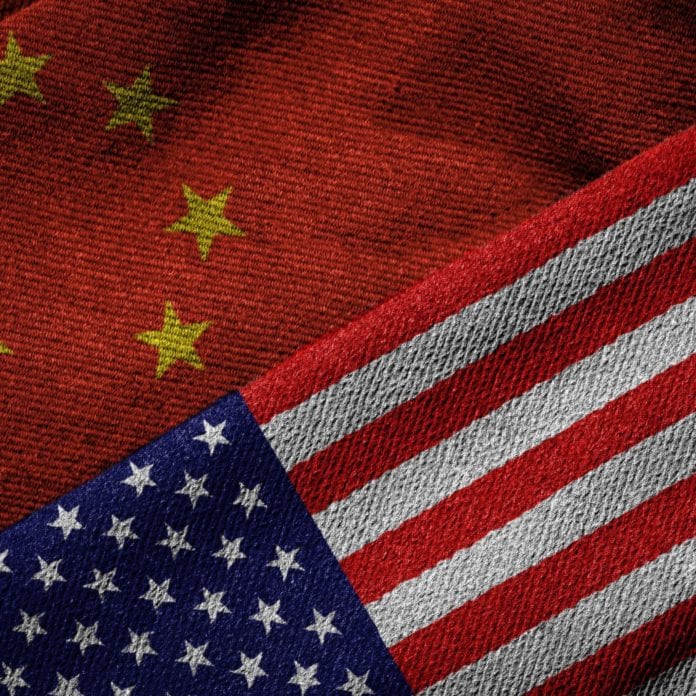FCC bars carriers which receive USF funding from buying ZTE, Huawei gear or services
The Federal Communications Commission has unanimously moved to block the use of Universal Service Fund monies to buy telecommunications equipment and services from companies that “pose a national security threat,” and designated Chinese vendors Huawei and ZTE as such companies. The FCC also adopted new rules that network operators which receive USF funds must get rid of gear and stop using services from the covered companies, proposing to establish a reimbursement fund to help defray the costs of doing so.
“The public funds in the FCC’s USF, which subsidizes U.S. broadband deployment and service through four separate programs, must not endanger national security through the purchase of equipment from companies posing a national security risks,” the FCC said in a statement on the new order.
“We take these actions based on evidence in the record as well as longstanding concerns from the executive and legislative branches about the national security threats posed by certain foreign communications equipment manufacturers, most particularly Huawei and ZTE,” said Chairman Ajit Pai. “Both companies have close ties to China’s Communist government and military apparatus. Both companies are subject to Chinese laws broadly obligating them to cooperate with any request from the country’s intelligence services and to keep those requests secret. Both companies have engaged in conduct like intellectual property theft, bribery, and corruption.”
The FCC order expands upon previous federal actions to bar Chinese telecom equipment vendors from the U.S. market on the basis of national security concerns. The Trump administration last year approved the National Defense Authorization Act, or NDAA, which included new regulations that banned government agencies doing business with Chinese vendors Huawei and ZTE. The companies were also blacklisted, with permits required for U.S. companies to do business with them. While such permits have not yet been issued, the Commerce Department as recently as last week was reportedly prepared to issue another extension in a series of extensions that are allowing rural network operators to continue to do some business with the Chinese vendors.
According to Pai, U.S. Attorney General William Barr recently wrote to the FCC, saying that the country is at “a critical moment of technological change,” as telecommunications service providers begin building out their 5G networks.
“We will become even more dependent on those networks as more and more devices and services are connected and operate at unprecedented speeds. Human life and safety as well as critical government functions will ride on them. Our national defense will depend on the security of our allies’ networks as well as our own. Protecting our networks (rural and urban alike) from equipment or services offered by companies posing a threat to the integrity of those networks is therefore a vital national security goal,” Barr wrote to the FCC.
The FCC order establishes a process for designating additional companies to be blocked as well. The agency is seeking comment on how to pay for the rip-and-replace process, and in order to design a funding program, plans to “conduct an information collection to determine the extent to which eligible telecommunications carriers have equipment from Huawei and ZTE in their networks and the costs associated with removing and replacing such equipment.”
All three Republicans and two Democrats on the FCC backed the measure. Commissioner Jessica Rosenworcel, a Democrat, said that her only issue with the action was that it didn’t happen faster.
“It should not have taken us eighteen months to reach the conclusion that federal funds should not be used to purchase equipment that undermines national security,” Rosenworcel said in a statement (italics hers). She also decried the lack of a coordinated federal policy on network security for a 5G world. “We need a coordinated, national plan for managing the future of 5G security—and the evidence all around us makes crystal clear we don’t have one,” Rosenworcel added. “Despite our actions today, we have to grapple with the fact that at any moment the Administration could trade away our security objectives for some momentary advantage in bilateral trade negotiations. I hope that does not occur, but let’s be honest, it has happened before, when this Administration reversed course on banning ZTE from doing business in the United States. … There is also a conspicuous lack of progress in other parts of the government tasked with addressing this set of problems.”
Huawei released a statement protesting that the FCC’s action was “based on selective information, innuendo, and mistaken assumptions. These unwarranted actions will have profound negative effects on connectivity for Americans in rural and underserved areas across the United States.”
Without access to Huawei’s solutions, the company said, rural and smaller carriers “will lose their ability to provide reliable and high-speed telecommunications and internet services. Rural schools, hospitals, and libraries will feel the effects. And, due to reduced competition in the market for telecommunications equipment, particularly in cutting-edge 5G networks, all Americans will pay higher prices for these critical services.”
Huawei also said that it believes the order is unlawful because it singles out Huawei but “provides no evidence that Huawei poses a security risk. Instead, the FCC simply assumes, based on a mistaken view of Chinese law, that Huawei might come under Chinese government control. … Huawei has remained open to engaging with the U.S. government to verify productive solutions to safeguard U.S. telecommunications systems. Huawei would never breach its customers’ trust.
“Huawei urges the FCC and Chairman Ajit Pai to refrain from finalizing its inappropriate designation of Huawei and to rethink its profoundly mistaken order. … The FCC is aware of best practices that could actually improve U.S. network security without unlawfully and irrationally targeting Huawei,” the Chinese vendor said. “Huawei would welcome the opportunity to work with the FCC and other U.S. government authorities to ensure that these best practices are incorporated fully in the U.S. telecommunications system to the ultimate benefit of U.S. commerce and consumers.”

